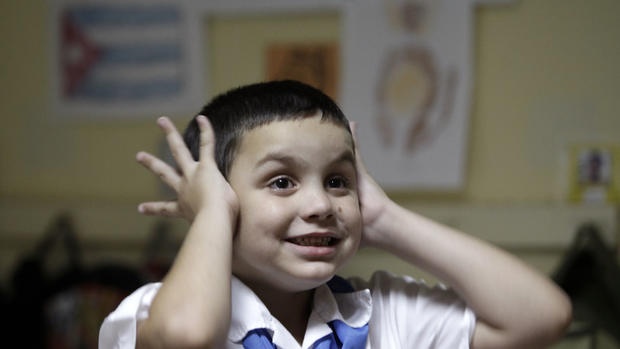Parents of autistic children less likely to have more kids
Parents who have a child with autism face a lot of unexpected parenting challenges, and it appears to take a toll on their plans for having future children.
Couples with an autistic child are about one-third less likely to choose to have more kids, compared with parents who do not have an affected child, according to a new study.
Researchers found that reproductive rates of parents of an autistic child were not affected until that child started showing symptoms or was officially diagnosed with the disorder. This suggests that the so-called reproductive stoppage is not the result of fertility problems but of a conscious decision not to have more kids.
"It looks like it is behavioral and not biological," study author Neil Risch, a professor of epidemiology and biostatistics and director of the University of California, San Francisco Institute for Human Genetics, told CBS News. "Reproduction looks typical until 2 to 3 years later."
The findings applied both to families whose first child had autism and those in which a later-born child was the first affected by autism.
In the study, published June 18 in the journal JAMA Psychiatry, researchers compared 19,710 families in which a child with autism was born between 1990 and 2003 with 36,215 families without an autism-affected child.
The results showed that as parents of children with autism choose to have fewer children, the genes that may predispose future generations for the disorder are less likely to be passed on. But interestingly, data shows that autism in the United States is on the rise.
"It is paradoxical," Risch said.
In 2000, the Centers for Disease Control and Prevention estimated that one in 150 children in the United States had autism spectrum disorder. By 2010, the most recent data available, the rate had more than doubled to one in 68 children. At least some of that increase is believed to be due to heightened awareness.
Risch said he does not think there is a definitive answer that would explain the discrepancy between the new findings and the increasing incidence of autism in the country. One possibility is that there might be environmental, rather than genetic factors that are responsible for the rise in autism, but, at this point, it is speculative, he said.
Dr. Thomas Frazier, director of research at Cleveland Clinic Center for Autism, offered an alternative view, saying that one likely reason for the increase in autism incidence in the U.S. is that, these days, people start having children later than they used to. According to a study published in 2006 in the journal Archives of General Psychiatry (currently JAMA Psychiatry), the risk of autism in children born to fathers older than 40 was 5.75 times greater than that in offspring born to fathers younger than 30, he said.
As for the latest study on parents having fewer children, "It is an excellent study, it is well done," Frazier told CBS News. "We needed a definitive study to show that there is [reproductive] stoppage," he said, adding that the results may help researchers better estimate the risk of autism in genetic counseling.
But there are still many questions about autism that research cannot answer yet, such as what exactly causes the disorder and how it can be more effectively treated.
"We are hoping that further research will enable us to identify both effective treatment strategies and, ultimately, modifiable causes of the disorder, so parents won't have to curtail their families for fear of having another affected child, "study author Lisa Croen, an epidemiologist and director of the Autism Research Program at Kaiser Permanente Northern California, said in a statement.
